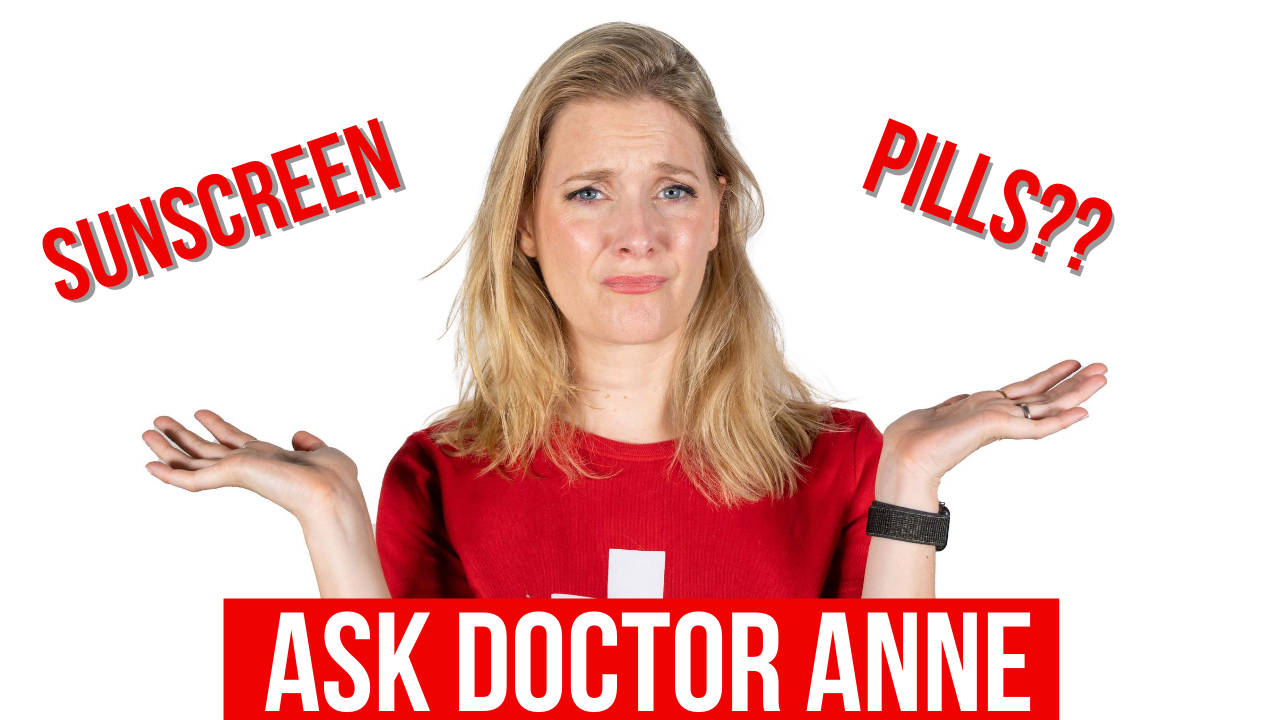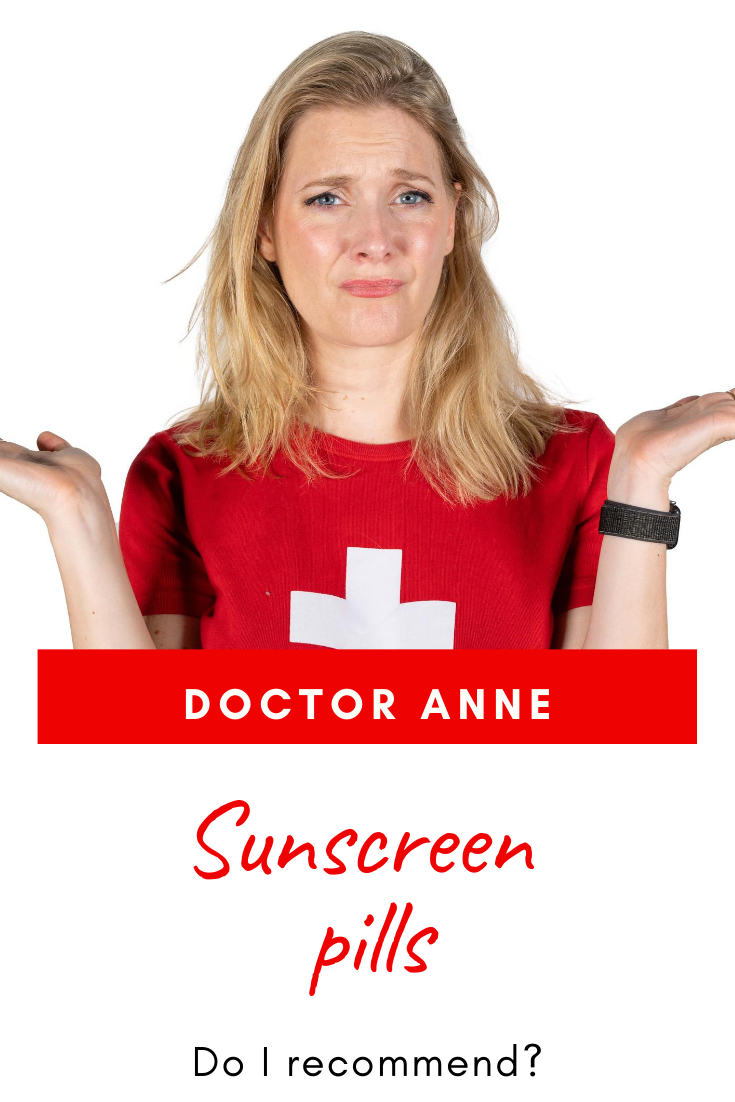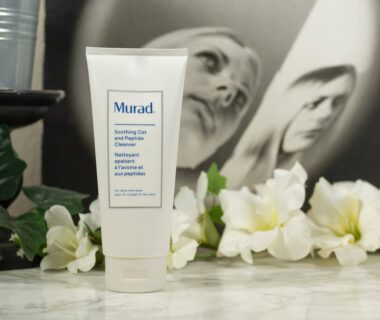Sunscreen pills – I admit I hadn’t even heard about them until recently, when quite a few people started asking me whether I would recommend oral sun protection.

A quick search revealed that not only sunscreen pills (although they go by a different name, we will get to that later) are very much a thing, but that they are also easily available in Germany.
So what are they and what do I think about them? I did my research!
Sunscreen pills, also known as oral sun protection, are manufactured by different brands, the most commonly known being Heliocare.
Disclaimer first: I will mention Heliocare a few times in this post, mainly because they were the brand I got the questions on. It is important to note that the company refers to their product as antioxidant pills and always notes that they should only be used together with regularly applied broadspectrum sunscreen, and that other than the oral supplements I am talking about today, they do a wide variety of sunscreens that I personally never tried, but that use good filters and are loved by many, so this is NOT a review of the company in general!
What is the notion behind oral sun protection?
This is a very short explanation, just so you get the thought behind the claims: UV rays lead to the production of so called Free Radicals or Reactive Oxygen Species (ROS). The more you are exposed to UV, the more of these Free Radicals occur.
Free Radicals can damage cells, leading to premature aging and what we know as sun damage, so anything that will catch them off will help prevent that.
Antioxidants, something I have talked about on here before, do catch the Free Radicals, which is why they are common ingredients in our skincare products. We do know that oral administration of antioxidants is more effective than topical one, so ingesting antioxidants does actually make sense.
What do sunscreen pills contain?
Antioxidants. Or, to be precise, ingredients that claim antioxidant properties.
Which antioxidant is used differs from manufacturer to manufacturer, most of them have one that they claim does the work, which in the case of Heliocare is a fern, lending the name to their catchy slogan “Fernprotect technology”, but add a few others that have a lot more research behind them.
Case in point, the Heliocare Ultra Capsules, which feature Vitamin C and E as well as the Fern Extract. And if you ask me, these two probably do the antioxidant work rather than the fern, but that would be hard to sell then over your random multivitamin bought at the drugstore.

Why are they called sunscreen pills then?
Here is where we circle back to what I said initially: Technically, they aren’t.
There were some, and those were quickly pulled because of false claims. If you look closely, none of them has “sunscreen” or “sun protection” in the actual name.
You do find them when you google the term though, which indicates this is what people look for in their search. And reading on, the distributor suggests that these work as sun protection. Yes, they state you need a regular sunscreen with them, but the way they talk about the product, the whole pseudo-medical advice how and specifically when they need to be taken in order to be “effective” suggests that they are more than your average food supplement.
I mean: “If intense sun exposure is expected, take an additional capsule at noon?” NO! Reapply your sunscreen and seek shade!
How are sunscreen pills regulated?
They aren’t.
They are supplements, and other than the beauty market, that despite what is often claimed is regulated very well, supplements underlie much less restrictions in terms of product claims. Which will forever be confusing to me, certainly what we ingest should be looked at much stricter than what we apply topically, but that is not today’s topic.
It of course doesn’t mean that all supplements are bad, but you need to know that you can only hope that they are produced by a company with well intentions, especially if you by them over the internet from who-knows-where. Possible scenarios range from you are just wasting money to you are actually ingesting harmful stuff, so keep that in mind.
Will sunscreen pills work?
That totally depends what you expect them to do.
If you use them for antioxidant properties – who knows? I mean, antioxidants DO work, but if the pills are better than eating, let’s say, tomatoes… I am not convinced.
If you however take them and think you can reduce the amount of sunscreen you apply, or spend more time in the sun, no, they will not work. Not at all. They might even have the opposite effect: You feel protected, after all you popped a pill and will end up getting more sun than you would have otherwise, with subsequently more sun damage.
Why don’t I recommend them then?
First: I am not one to advise you on supplements. I am not a nutritionist, I am not a dietician, and while I do believe that some supplements can be helpful in individual people with individual concerns and lifestyle choices, I´d rather have an apple than pop a pill to get my antioxidants. If you feel otherwise, go ahead, but please always consult with your doctor or a specialist before ingesting random stuff.
The main reason though I don’t recommend them is because I think their marketing is misleading and people will mistake them for what they are not: A replacement for regular application of a broadspectrum sunscreen with at least an SPF of 30, or for being sun smart in general, like seeking shade, avoiding the midday sun and wearing sun protective clothing.
To prove my point, here is a customer review from a website:

But can you blame the company for the stupidity of consumers?
This is where it gets philosophical. In my opinion yes, to a certain extent you can.
Companies pay people to write texts that suggest things they are not legally allowed to claim, fully knowing that quite a few will get it wrong. The honest thing here would be to say: This is an antioxidant pill, antioxidants are good for different things, we recommend you take them daily.
Rephrasing that as “added sun protection”, despite telling people to wear sunscreen, might be legal, but I don’t think it is ethical.
People don’t like applying sunscreen. People don’t wear enough sunscreen. Skin cancer is on the rise.
The last thing we need is anything that gives people an excuse to be even less diligent with their protection.



